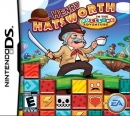Xbbjf9s said:
I'm not sure why they did, why limit themselves? I understand that developing the phone for sprint/verizon would be a bit different considering the networks they use but the iphone could easily went to tmobile. Wait...does the iphone use a sim card like other gsm phones? |
To answer your first question, Apple limited themselves to AT&T because that was the price of entry into the US smartphone market. You can't succeed by just selling a phone in the US, you need the carriers to showcase, distribute, most importantly, to subsidize the handset. Verizon passed on the original iPhone because Apple insisted that they, not Verizon, would have absolute control over the software. AT&T was willing to concede software control in exchange for exclusivity, so they inked a deal with Apple. It's one of the best deals that either company has ever made.
Compare that to the Nexus One, which tried to ditch the carriers and, correct me if I'm wrong, failed to even sell a million units, despite having excellent hardware and better software support than any Android phone before or since.
To answer your second question, yes the iPhone uses a standard SIM card.
Nightsurge brings up an important point by mentioning the iPod Touch. While Symbian, Android, and others have been considering themselves to be phone platforms, Apple immediately started to position themselves as a mobile computing platform. It's a subtle, but important, distinction that Apple treats the iPhone as a computer that can make calls rather than a phone that can run programs. It's allowed them to leverage their MP3 player hegemony and recreate the tablet computer in support of their mobile ecosystem. No other mobile platform will really be a threat to iOS until its software market starts to be anywhere near as lucrative as the App Store.

"The worst part about these reviews is they are [subjective]--and their scores often depend on how drunk you got the media at a Street Fighter event." — Mona Hamilton, Capcom Senior VP of Marketing
*Image indefinitely borrowed from BrainBoxLtd without his consent.




















